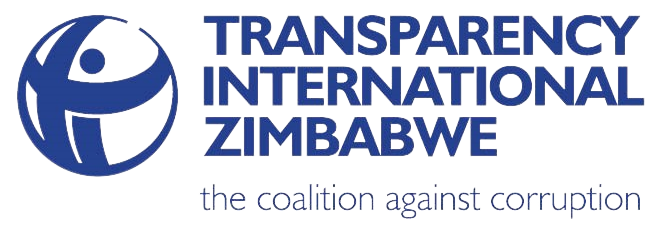12 April 2022 - TI Z calls for a formal and active role for civil society organisations (CSOs) which enables them to complement the government's ongoing asset recovery efforts. The local chapter of Transparency International makes this statement on the backdrop of the publication of a discussion paper entitled ‘The Role of Civil Society Organisations in Asset Recovery’ which presents proposals on how civil society can facilitate asset recovery efforts.
The UN Convention Against Corruption, which Zimbabwe is a signatory to, defines asset recovery as the process of recovering and repatriating the proceeds of corruption to the country from which they were taken, or to their rightful owners. It may also be defined as the process by which the proceeds of crime are identified, traced, seized and forfeited to the state.
Currently, in Zimbabwe only public sector departments in the anti-corruption value chain are involved in asset recovery. These include departments and agencies such as the National Prosecuting Authority (NPA), the Zimbabwe Revenue Authority (ZIMRA), the central bank’s Financial Intelligence Unit (FIU), the Office of the Auditor General (OAG), the Registrar of Companies, Deeds and Intellectual Property, the Central Vehicle Registry (CRV), and the Department of Immigration to name a few. They all collaborate on activities necessary to recover stolen assets, such as collecting intelligence, evidence and asset tracing, securing assets and spearheading court processes in court.
The Money Laundering and Proceeds of Crime Act [Chapter 9:24] currently governs recovered assets. The Act provides for the establishment of the Asset Management Unit (AMU) which is meant to be the custodian of all property confiscated or forfeited. Using examples such as Equatorial Guinea and Nigeria, TI Z’s discussion paper proposes a complimentary role for CSOs to play in the asset recovery value chain, through raising public awareness, advocacy, legal analysis and return of stolen resources.
The execution of transparency in asset recovery is important in the anti-corruption fight to ensure that the recovered assets are protected from corruption and theft. “Organised civil society should play a role in the stages immediately before and during the return of confiscated assets originating from corruption and related crimes,” says TI Z. Using the examples from other jurisdictions, the document reveals that, "in 2017, the Swiss government returned about US$322.5 million of money stolen by former leader General Sani Abacha to Nigeria on the condition that the World Bank be involved alongside civil society groups in monitoring its use, so as to prevent the money being stolen again." Furthermore, CSOs in Nigeria established a loose coalition, the Monitoring Transparency and Accountability in the Management of Returned Assets (MANTRA), to monitor the disbursement of the recovered funds.
The Zimbabwe Anti-Corruption Commission (ZACC) has previously estimated that US$7 billion is illegally held in foreign bank accounts by politically exposed persons (PEPs), an amount nearly equivalent to the country’s principal external debt. TI Z asserts that these stolen resources have deprived citizens of their social and economic rights, especially noting the country’s resource challenges characterised by sub-optimal investment and aid flows, resource leakages, a volatile macroeconomic environment and sluggish growth over several decades.
The CSO also highlighted the importance of asset recovery in meeting some of the targets linked to the Sustainable Development Goals (SDGs). In this regard, SDG 16 impresses for countries to reduce the incidences of corruption for sustainable socio-economic transformation. Targets 16.4, 16.5 and 16.6 specifically refer to the need for reducing all forms of corruption, strengthening the recovery and return of stolen assets, and developing transparent institutions.
Details on the total amount which has been recovered in Zimbabwe are still sketchy owing to limited evidence and detailed studies on asset recovery. Observers have cited various challenges bedevilling the asset recovery process to include factors such as insufficient resources accorded to the competent agencies, banking secrecy laws, challenges in producing evidence linking assets to criminal activities and lack of expertise to unearth sophisticated crimes. In this context, civil society feels it has a role to play together with the public sector to advance the goal of recovering Zimbabwe’s stolen wealth.
For the full publication on the document entitled ‘Role of Civil Society Organisations in Asset Recovery’ visit the TI Z website: https://www.tizim.org/knowledge-resources/
